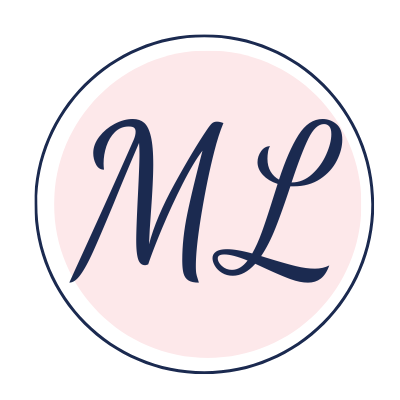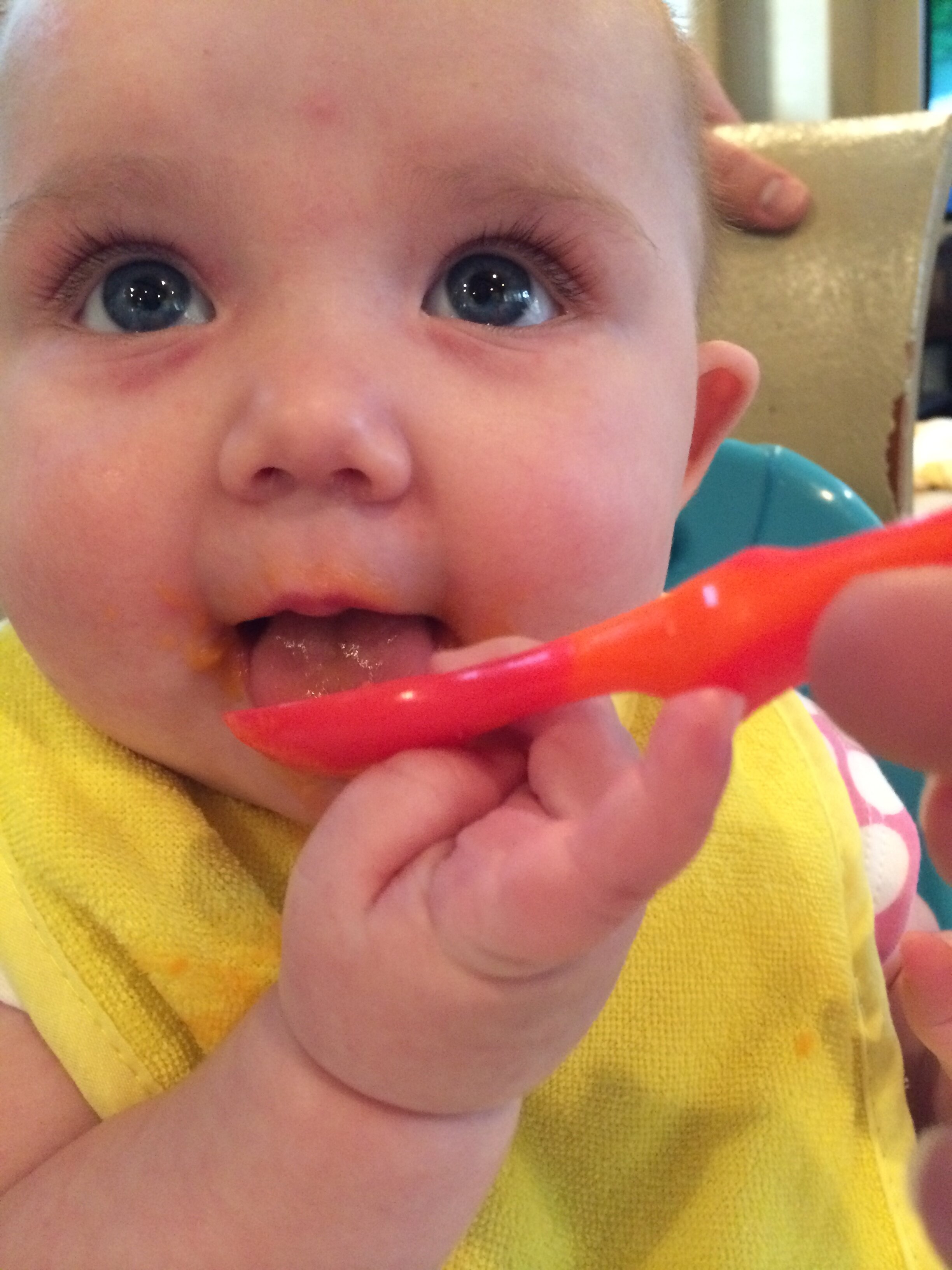Toxic Heavy Metals and Baby Food. What You Need To Know.
Last week, the US House of Representatives Subcommittee on Economic and Consumer Policy released a report on Heavy Metals in Baby Foods - specifically arsenic, cadmium, lead, and mercury. Overall, it is a good report. Well-referenced, filled with easy to read data points, only slightly political, with clear recommendations for moving forward. The headlines about this report are designed to strike fear, to get us to click the story and read articles. As such, this report has mom’s everywhere wondering:
OMG! Did I Poison my kids with baby food? Should I change everything my kid eats? Cook everything? What if I plant a garden in the back yard and grow everything and cook it? I thought organic meant I was protecting my kids?
But, before we all freak out, let’s get a little bit more information - because information and education is THE key to making the best decisions we can for our kids.
How did this report come about?
In April of 2020, Healthy Baby Food published a report stating that a national investigation finds that
95 percent of baby foods tested contain toxic chemicals that may lower babies’ IQ, including arsenic and lead. This report prompted the US House of Representatives to create a subcommittee to review the findings. The subcommittee, which was set up in November 2020, released its report on heavy metals in baby foods last week, confirming that there are higher than recommended levels of heavy metals in some baby foods. Hence the fear from every parent who has ever fed their child baby specific foods - pouches, jars, biscuits, puffs, etc. It is important to note that this report does not address formula in any way.
Emmeline is loving her first bites of Sweet Potatoes, which Mama made in the Baby Breeza.
Background, Science, and Research
We are all exposed to heavy metals. These metals come to us from a variety of sources. Inorganic arsenic is present in food and water due to the presence of soil. Lead may be in your water from lead pipes. While we may want to avoid all heavy metals, it is nearly impossible. Well, honestly, it is actually impossible. Baby foods are not unique to this problem.
Heavy metals in baby food is not a new issue. In 2015, Marion Nestle brings to attention the concern of arsenic in rice and in 2018, Marion Nestle again discusses the arsenic problem in infant cereals. In 2016, the FDA proposed limits on arsenic in infant rice cereals, issued a call for comments, but action has been limited. Additionally, Healthy Babies Bright Futures published a report on arsenic in 9 brands of infant cereal, finding that there is 6 times more arsenic in infant rice cereal than in other infant cereals. Rice cereals used to be recommended as the first food for infants. Due in part to these concerns about arsenic, many pediatricians have stopped recommending rice cereal as the first foods for infants, skipping rice cereal all together and starting with vegetable purees.
Unlikely, if not impossible, to remove ALL heavy metals from baby foods. These heavy metals are common in our environment, in our soil, and in the ground. Plants absorb these heavy metals as they grow, with variation in amounts based on fertilizers used, geographic location, and the processing that foods go through. For example, cocoa beans are low in lead, but chocolate and cocoa powder may have high levels of lead simply due to processing and manufacturing practices that introduce lead into the cocoa. This article in Health discusses how there may be lead in your chocolate, but describes why you shouldn’t freak out.
These metals build up over time, not from a single dose. Heavy metals build up over time. The amount you need to ingest to be poisoned by a single dose of arsenic is magnitudes higher than the levels we are talking about in these reports. However, the worry is that small amounts of exposure to heavy metals may build up over time and cause problems. These problems are largely neurologic, associated with lower IQ, developmental delay, learning disabilities, and increases in behavior problems in kids.
Organic baby food are grown in the ground. For many parents, the idea of buying organic baby food equates to buying healthy and safe baby food. But, organic baby food ingredients are grown in the ground the same way nonorganic baby food ingredients are grown in the ground. Organic baby food still starts from ingredients that grow in the ground (where there are heavy metals), the food is still processed. In this report, both organic and non-organic brands of baby foods had heavy metals present.
Are processed foods different from non processed foods? This report leaves us wondering — if I did baby lead weaning or no processed foods, is my baby safe from heavy metals? Well, the congressional report was only about processed baby food. But there has been no comparison of processed vs. non processed foods. And I would refer you back to this information about what is in the foods that babies eat. In all honesty, heavy metals are in the food we eat - and we can not eliminate them all. You can not claim that baby led weaning means less heavy metals, and people claiming that are not being honest about what we do and do not know at this point. That said, I am a huge advocate of moving kids away from processed pureed foods to table food as quickly as possible.
But how much will kids really ingest? When looking through everything, it really seems the biggest concern is rice based products and arsenic. There is some data out of Bangladesh that links high arsenic exposure (as measured by arsenic levels in the urine) to lower IQ in children. But this study was assumed to have prolonged high exposure (up to and over 200,000 micrograms over the first 6 years of life). Assuming babies and toddlers eat 2 servings of puffs per day for a period of 2 years, that is 1752 micrograms of arsenic, significantly lower exposure than what was reported in the Bangladesh study.
Lincoln likes his first bites! Maybe…
Next Steps and Recommendations:
The click bait titles of the articles about the congressional report suggest that baby food is a little bit of fruit or veggies mixed with toxic metals in a jar, pouch, or puffs container. But after reviewing the history and data, I think a more appropriate stance reflects the idea that some rice-based baby foods and puffs may contain high enough levels of arsenic to warrant further investigation and intervention. Here are the recommendations from the congressional report as well as my thoughts on them.
Mandatory testing. They recommend that baby food manufacturers should be required by the FDA to test finished products for toxic heavy metals, not just the ingredients. This seems reasonable since manufacturing and process can change final concentrations.
Labeling. Manufacturers should be required by FDA to report levels of toxic heavy metals on food labels. Eh - to be honest, most people don’t read the labels. I think #4 below would negate the need to include this information on the labels.
Voluntary phase-out of toxic ingredients.
FDA standards. The FDA should set maximum levels of toxic heavy metals permitted in baby foods, and the level should be set to protect babies agains the neurologic effects of these toxic heavy metals.
Parental vigilance. Parents should avoid baby foods that contain ingredients testing high in toxic heavy metals, such as rice products. While I agree with the statement, I do not believe the burden should be placed on families. The products should be safe.
I’m not so sure of this Mama. You want me to eat what???? Elizabeth is not too sure about those first solids.
My Takeaways
Reduce processed foods and juice. I very purposely said reduce, not eliminate. Let’s be honest. Sometimes, we just need convenience. My kids ate some puffs, but it wasn’t their main source of finger foods. What else can you use instead? Blueberries, shredded apples, black beans, yogurt bites, goldfish, and cheerios were some of our favorites.
Choose less rice-based snacks. In looking at all the data I have reviewed, rice seems to be the biggest offender. So choose baby oatmeal over rice cereal. Try to limit processed rice snacks like teething biscuits, puffs and foods mixed with rice. Additionally, make sure you are cooking rice in excess water to reduce the risk of arsenic exposure. Ultimately, stop beating yourself up for serving some convenience foods. You are not poisoning your child.
We do not have to live in fear over this news. I feel as if there are so many rules about what I should and shouldn’t feed my kids. Processed meat leads to cancer and sugar is bad. Gluten is evil and fat (which used to be the devil) is now our friend. Instead of living in fear, let’s learn more, educate ourselves and make our best decisions. Say no to click bait articles driven by fear, instead focusing on real information and science to guide our decision making.
Variety, variety, variety. If you take away nothing else from this article, realize that every food has good and bad elements. Every food will have different levels of heavy metals. Every food will have different levels of sugar and fat. Every food will have different minerals and vitamins. The more variety your kids eat, the more likely they are to get a well balanced diet filled with all the fat, protein, vitamins and minerals you need. And, you spread out your risk of heavy metal ingestion. As a bonus, the more variety to offer your baby, the more they will eat down the road. My kids love pepper fries (sliced red, orange, and yellow peppers) and apple slices more than chips and fruit snacks…for now at least!
My three cuties, hiking up a mountain and eating sugar. Looking neurologically appropriate despite having an occasional puff.





